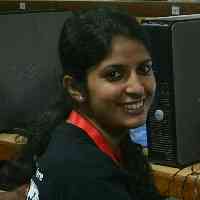Program

Aaron Cruz
Aaron lives in the suburbs of Vienna, Austria but is a native of the suburbs of Seattle. In his former life he was a shepherd, a cheesemaker and a sous chef. Now he is freelancing, building native iOS and Android apps and their respective API's. In his spare time, he organizes a range of user groups in Vienna. If you get him started talking about food, he may never stop.
Talk: This Bot Will Pump You Up!
Bots got me in amazing shape. My goal was to be able to do a handstand but I took it much further than that. I built a series of fitness related bots as a side project and I learned a ton about what works with bot development and conversational interfaces. Did you know messaging apps are growing faster than social networks? In this talk I'll show you the ins and outs of using Ruby to create bots for this enormous audience. Get ripped with Ruby!

Adam Hawkins
Adam is a proud traveller and trance addict. He lives in Bangalore, India. Right now his full time gig is for Saltside. He runs the SRE team and trains a new generation of engineers how to build, ship and operate production systems according to the DevOps philosophy using Docker.
Talk: Production Ready Ruby
This talk accumulates best practices hardened from years of building, shipping, and running a varies of Ruby services in production. The talk walks through simple steps to take to improve the production operability, debuggabilility, and insight of production services. It's easy to gem install production and expect everything to just work. Here we take a difference approach by showing the code and understanding how to approach the operability perspective.

Anagha R
Anagha is an undergraduate student doing her computer science and engineering from Amrita University and an open source enthusiast. She has developed a basic application in Ruby on Rails and is currently developing it based upon her existing knowledge. She is a GHCI2016 student scholar and an advisor for the #include fellowship program by the she++ community.
Talk: Getting Started With Rails
The talk is aimed at beginners who want to get started with a Rails application from scratch.Here you will have an overview on Rails and will be guided to make an application using it and problems a newcomer faces in getting started with Rails.

Anil Wadghule
Anil is currently an Independent Software Consultant and helps organising Deccan RubyConf. When not programming, he spends time in exploring music around the world. Emacs is his text editor of choice. He loves learning different programming languages so that he can use right one at right place. He believes in improvising solutions till they are perfectly right.
Talk: concurrent-ruby modern tools explained
I am going to present modern concurrency tools provided by concurrent-ruby gem These modern concurrent tools provided by concurrent-ruby gem are inspired by Erlang, Clojure, Scala, Go, Java, JavaScript, and some classic concurrency patterns. We will go through detailed example of each of the tool. This talk will be very useful for modern Rubyist to understand concurrency abstractions those can be used in their application code.

Kiran Narasareddy
Kiran, one of the Co-Founders, heads the Technology division at Amura. With a passion for all things tech, he is always on the lookout for the latest trends and has been successful in leveraging them to maintain Amura's competitive advantage in the digital space. Kiran's expertise in technology took root right from his college days, where he built a complex decision-making engine for the US mortgage industry. Consequently, his proficiency in defining high level design and architecture, his data modelling skills as well as his acute interest in executing large scale systems have helped Amura launch Sell.Do, an industry leader in Real Estate Sales and Marketing Automation. With a penchant for coming up with quirky names for products, Kiran can usually be found wired into his mac, hacking on for the next big thing for Amura.
Talk: 10 things (not) to do before going to production with rails+mongo+sidekiq
We all know it doesn’t take much to code up a simple application in Rails with mongo. But what happens when your app is a hit with your users? Simple things which were working just fine start behaving weirdly and the next thing you know your app is sluggish, crashing every few hours when the load spikes. This talk is a summary of all the things that i have encountered while taking our product from 0 to 5000+ users handling more than a million transactions on a daily basis. It covers simple rails patterns that scale, ones that fail, design patterns and system architecture that will help have a peaceful sleep at nights, designing your datastore for scale, better background processing, monitoring. Attendees can learn about all the ways their can fail so that they plan ahead for them.

Prasun Anand
Prasun is a final-year student at BITS Pilani, Goa, India pursuing a dual degree in M.Sc. in Biological Sciences and B.E. in Chemical Engineering. He is a SciRuby contributor, Bioinformatics enthusiast and has worked on "JRuby port of NMatrix" in context of GSoC 2016. In his earlier days, he contributed to Javascript projects. Currently, he is working on bringing High-Performance GPU computation to Ruby (MRI and JRuby) using OpenCL by building ArrayFire gem. In his spare time, he likes playing Mortal Kombat.
Talk: Scientific Computing on JRuby
JRuby is known for performance. NMatrix, a linear algebra library, now supports JRuby. All SciRuby gems that depend on NMatrix can now be run on JRuby. A scientific library must be highly efficient as the programs can be memory intensive. The programs must be fast at the same time. This calls for optimization. Suppose, you are running a Ruby program and you need to make it faster; you use threads, yet you are not happy with the results! Just chain the Ruby methods to Java methods. Using Java method can improve the speed, around 1000 times when compared to using Ruby method. Not only speed, it can help you save a lot of RAM, around 10 times. JRuby’s Garbage Collection can sometimes slow down your program if you are not careful with handling a large amount of data.

Richard Schneeman
Richard "Ruby Hero" Schneems writes Ruby at Heroku, maintains CodeTriage.com, and co-organizes Keep Ruby Weird. He is in the top 50 Rails contributors and is an accidental maintainer of Sprockets. When he isn't obsessively compulsively woodworking he writes such gems as Wicked, and derailed_benchmarks. Schneems wants you to have a nice day.
Talk: SLOMO
No one wants to be stuck in the slow lane, especially Rubyists. In this talk we'll look at the slow process of writing fast code. We'll look at several real world performance optimizations that may surprise you. We'll then rewind to see how these slow spots were found and fixed. Come to this talk and we will "C" how fast your Ruby can "Go".

Sameer Deshmukh
Sameer is a Computer Engineering graduate from Pune University. He maintains scientific Ruby libraries as a maintainer for the Ruby Science Foundation (SciRuby). He is the author of daru, a DataFrame library for Ruby and is currently working full time on building Rubex, a new language to make it easier to write extensions for Ruby. He loves solo travelling and is also a part time musician - playing the bass guitar for his band Cat Kamikazee.
Talk: Introducing Rubex: A better way to write Ruby extensions
Previously, Rubyists mainly depended on FFI, SWIG or Rice for easily writing C extensions. However, all abstractions leak, and this approach has many pitfalls when it comes to interfacing Ruby with complex C interfaces that require ‘glue’ code. The only option left, in that case, is to write a C extension manually. Writing C extensions is a very tedious process. You need to change your thinking paradigm when programming, there are very few reliable debugging tools available and the programmer needs to be well versed with the CRuby C API. Moreover, the CRuby C API can change with a new release of Ruby, and the library will most probably break when upgrading Ruby versions. And of course most of you don’t like C programming more than Ruby programming. In this talk you will be introduced to Rubex, a new Crystal-inspired language that makes writing Ruby C extensions super simple. Rubex looks very similar to Ruby, and compiles to C code that implicitly interfaces with the CRuby C API. It provides ample functionality for creating any C data structures and data types and making them work with external C libraries.

Shashank Date
Shashank Daté has been programming in Ruby professionally since 2002. He has contributed to the very early versions of Ruby One Click installer on Windows and win32utils - a set of Ruby libraries for Windows. He is the technical editor of The Ruby Way (2nd. ed) by Hal Fulton. He has been instrumental in making Ruby popular in his hometowns (KC, USA and Pune, India). He co-founded Kansas City Ruby User Group. In 2011/12, he was on the organizing committee of Ruby Midwest regional conferences.
Talk: (m)Ruby on small devices
Beginners should benefit from understanding how and why mRuby is more suited for embedding than Ruby. No previous mruby experience needed. Intermediate audience should get a feel for the mruby API and its limitations. Finally, I really hope that I will be able engage more advanced level audience with some memory and run-time optimization techniques I have discovered while playing with the language.

Shaunak Pagnis
Shaunak is a core team member of Amura's product division, Sell.Do, where he contributes to large scale Rails based products. Introduced to Ruby 4 years ago, it has since been his go-to language. When not working, you'll probably find him listening to Metallica or exploring complex magic systems of Brandon Sanderson's Cosmere.
Talk: Lazy, lazy, lazy all the things!
Lazy programming has been a fundamental feature of a lot of programming languages, especially functional programming languages like Haskell. Being inspired by these languages, Ruby offers us a few nifty ways of doing lazy programming. The ability to avoid needless calculations, perform operations on potentially infinite sequences and defining control flow as abstracts can exponentially reduce the running time of your programs.

Swanand Pagnis
Swanand is a Principal Engineer at First.io and an organiser at Garden City RubyConf. Fancy titles apart, he's a software engineer who spent the last decade writing some bad code, and some good code, and shipping software to users. He loves writing software, building communities, and ranting on Twitter.
Talk: It's 2017, and I _still_ want to sell you a graph database!
The aha!s and the oh-noe!s of over one year of building our product with a graph database, Neo4j, along with big brother PostgreSQL and hipster cousin Redis with Rails.
This talk will attempt to answer an important question, "when does using a graph database make sense?", through retrospection.

Yukihiro Matsumoto
Yukihiro "Matz" Matsumoto is a programmer, and the creator of the Ruby language. He works for many open source related organizations and companies, e.g. NaCl inc. in Japan, Heroku and Ruby Association. Since his real name is difficult for non-Japanese speakers to pronounce correctly, he uses the nickname Matz on the Net. Matz spoke at RubyConfIndia 2016.
Talk: Opening Keynote